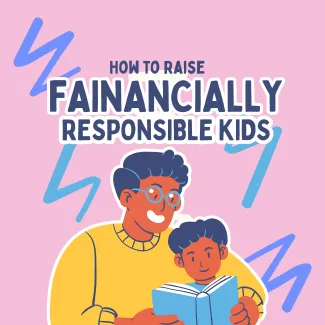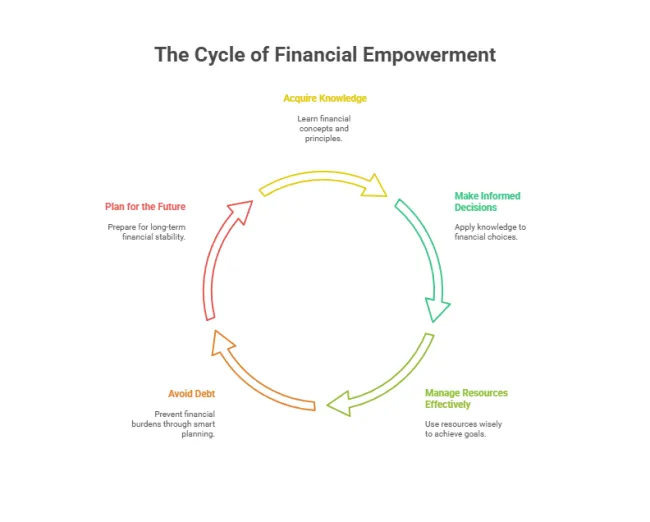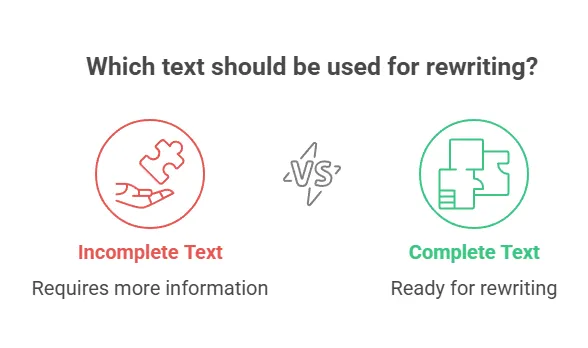
Raising Financially Responsible Kids: A Dallas Financial Planner’s Guide
As a mom of two girls and a Dallas-based Certified Financial Planner™, I think about money conversations with my kids all the time. Not just because it’s my job—but because I want them to feel confident, capable, and in control when they grow up.
That’s why I included a whole section in my book Future-Focused Wealth about raising money-smart kids. It's personal. It's essential. And it starts earlier than you might think.
Whether your child is 5 or 15, this guide walks you through age-appropriate strategies to build lifelong financial literacy—right from your own kitchen table.
Why Financial Education Matters—Now More Than Ever
Let’s be honest—most of us didn’t learn about money from a textbook. We learned it from watching. We saw how our parents handled bills, how they talked about money (or didn’t), and how they reacted to financial stress.
Children are always watching. They absorb our habits, our fears, and even our money mindsets. If we avoid budgeting, impulse spend, or stress over debt, they pick up on it. The flip side? If we demonstrate goal-setting, saving, and generosity, those values stick with them too.
Here’s the challenge: most schools no longer teach real-world financial skills.
Personal finance has been pushed to the sidelines or removed entirely from curricula in many states, including Texas. That means if your kids are going to learn how money works—from budgeting to saving to using credit wisely—it has to start at home.
💡 Dallas Family Planning Insight: As a Certified Financial Planner™ and a mom, I see firsthand how early money habits shape long-term outcomes. I’ve worked with families where financial anxiety started in childhood—and others where early guidance built unstoppable confidence. The difference? Intentional conversations.
By teaching our kids financial literacy, we’re not just showing them how to use a debit card—we’re shaping their confidence, independence, and decision-making for the rest of their lives. And that’s a gift far more valuable than anything we could wrap in a box.
Teaching Kids About Money: Start Early, Grow Over Time
Just like we teach our children to walk, talk, and tie their shoes, financial responsibility is a life skill that develops in stages. What your preschooler needs to know about money is different from what your teen should be practicing—but both are essential steps toward raising confident, capable adults.
From learning that money doesn’t grow on trees to understanding credit, taxes, and long-term savings, financial education is a journey. In my work with Dallas families—and in my own experience raising two daughters—I’ve seen that when we introduce money lessons early and evolve them with age, our kids don’t just “get better with money”… they become better decision-makers overall.
Let’s walk through what financial literacy can look like from toddlerhood to college—and how you can support your child at each phase.
Ages 3–7: Teaching Young Kids About Money Starts Early
This stage is where financial literacy for kids begins. Children between ages 3 and 7 are curious observers. They see you swipe cards, tap your phone, and hand over cash—but they don’t yet understand what money really is. That’s why introducing basic money concepts early can help plant seeds that grow into lifelong financial habits.
💡 What to Teach Your Preschooler About Money:
- Money is earned by working—not just “given”
- You trade money for goods and services (like toys or groceries)
- Saving means waiting—you don’t spend all your money at once
🧩 Simple, Hands-On Activities to Build Money Awareness:
- Use clear jars or piggy banks to show how money grows over time
- Set up a pretend store at home using real coins and price tags
- Let them hand over cash at checkout to feel the value exchange
📌 Dallas Parent Tip: Turn your grocery runs into mini money lessons. Ask your child to compare the price of apples or count out coins for a small treat. These real-life errands become fun, age-appropriate budgeting games!
Ages 8–12: Building Money Habits with Allowance, Saving, and Spending
At this age, kids are developmentally ready to understand more advanced financial concepts. It’s the perfect window to teach them that money isn’t infinite—and that their choices carry real consequences. Financial education for tweens should be experiential, not just theoretical.
💡 What to Teach Your Elementary-Age Kids About Money:
- Needs vs. wants: Why we prioritize essentials before extras
- Short-term saving goals: Delayed gratification builds discipline
- Opportunity cost: Choosing one thing often means giving up another
🧠 Practical Activities to Reinforce Smart Money Skills:
- Create a simple allowance system tied to age-appropriate chores
- Use the popular Three Jars Method—Save, Spend, and Give
- Open a custodial savings account and review statements together
📘 Fiduciary Insight from a Dallas CFP®: I often meet families who avoid money conversations to “protect” their kids. But avoiding the topic leaves children financially unprepared. These years are a golden opportunity to build financial confidence in a safe, supportive way.
📌 Dallas Parenting Tip: Let your child save for something fun (like a video game or outing) and track their progress together. This not only teaches budgeting—but gives them the thrill of earning their own reward.
Ages 13–15: Budgeting Basics & Goal Setting for Teens
Welcome to the middle school years—where independence grows, spending pressure rises, and teens begin making more financial decisions on their own. This is the ideal time to introduce foundational budgeting skills for teens and help them connect money to their personal values.
💡 What to Teach Your Tween or Early Teen About Money:
- How to track income and spending from allowance, birthday money, or part-time jobs
- Budgeting for non-essentials like entertainment, outings, and online shopping
- Delayed gratification: Learning that saving for big goals is more rewarding than impulse buys
🧠 Real-World Activities for Financial Skill Building:
- Use a kid-friendly budgeting app like Greenlight
- Offer parental savings matches for goals like concert tickets, gaming systems, or hobby gear
- Hand them a back-to-school shopping budget and let them decide how to allocate it
📌 Dallas Planning Tip: Encourage your teen to tie their savings goals to something they care about—whether it's supporting local animal shelters, buying their first car, or funding future travel. When the goal has emotional weight, the motivation to save skyrockets.
📘 Fiduciary Insight: In my Dallas-based practice, I see that teens who start budgeting early are far more confident when it comes to managing their first paycheck or college budget later on.
Ages 16–18: Building Real-World Financial Responsibility
By the time your teen hits driving age or starts earning a paycheck, they’re standing at the threshold of adulthood. These late teen years are a critical stage for financial education—and the habits they build now will carry into college and beyond.
💡 What to Teach Older Teens About Money:
- How checking and savings accounts work (including online banking and overdraft protection)
- Understanding pay stubs, payroll taxes, and net vs. gross income
- The basics of credit, debt, and responsible borrowing—before they’re offered student loans or credit cards
🧠 Financial Activities to Prepare Them for Independence:
- Have them build a mini-budget based on their part-time job or side hustle income
- Consider co-signing a low-limit student credit card and teaching how to use it responsibly
- If they have earned income, open a Roth IRA and explain the power of tax-free compounding over time
📘 Future Focused Wealth Tip: One of my teen clients here in Dallas saved over $2,000 in her Roth IRA before graduation. That small habit didn’t just grow her savings—it gave her financial confidence and long-term vision.
📌 Dallas Parent Insight: Before your child heads to college, make sure they understand how to manage their own money—including budgeting for groceries, setting up auto-bill pay, and avoiding credit card debt. These aren’t just good ideas—they’re essential life skills.
Ages 18–22: Launching into Financial Independence
Your child is officially entering adulthood—whether they’re heading to college, starting a career, or a mix of both. This stage is less about guidance and more about empowering responsible, confident decision-making. Think of it as financial “training wheels off.”
💡 What to Teach Young Adults:
- How to manage a full, real-world budget (rent, food, subscriptions, insurance)
- Credit scores, student loans, and responsible borrowing habits
- How to compare job benefits, understand paychecks, and read a lease
🧠 Real-World Financial Activities:
- Walk them through FAFSA forms, student loan repayment expectations, and how interest accumulates
- Help them set up direct deposit, bill pay, and a basic budget app
- Encourage them to build an emergency fund and contribute regularly—even $25/month
📘 Melissa’s Future Focused Wealth Tip: College-age clients who set up automated savings—even in small amounts—report feeling less anxious and more confident managing money. It’s not about how much—it’s about building the habit.
📌 Dallas Parent Strategy: If your child is moving away from home, take a day to “set up their financial life.” That means walking through online banking, student loan dashboards, and understanding credit cards. The gift of confidence lasts longer than any dorm furniture.
Key Financial Concepts to Emphasize (At Any Age)
No matter your child’s age or life stage, some financial lessons are universal. These core values form the foundation of lifelong financial literacy and emotional intelligence around money.
💼 Earning Is Empowering
Kids should learn early that money is earned through effort, not entitlement. Whether it’s chores, a part-time job, or entrepreneurial ventures, connecting effort to income builds confidence and a strong work ethic.
📌 Dallas Parent Insight: Even young children can “earn” privileges through responsibilities—planting the seeds of financial independence.💰 Saving Is Smart (Even in Small Amounts)
Teach your child to save at least 20% of everything they receive or earn—birthday money, allowance, paychecks. It creates a habit of paying yourself first, and that mindset is what builds long-term wealth.
📘 Melissa's Pro Tip: In my book Future Focused Wealth, I explain how saving regularly—not perfectly—is the real secret to financial security.
🎯 Spending Should Reflect Values
From a new toy to a first car, every purchase is a chance to reinforce intentional spending. Talk about goals, trade-offs, and asking, “Does this align with what matters to me?”
📌 Dallas Planning Tip: Tie spending decisions to short- and long-term priorities. This helps children avoid impulse purchases and develop value-driven money habits.
❤️ Giving Builds Character
Generosity isn't about how much you give—it's about creating a heart for helping others. Let kids choose causes or charities that mean something to them and contribute regularly from their own money.
🧠 Behavioral Finance Insight: Studies show that giving not only builds empathy—it boosts happiness and self-worth, especially in young people.
💳 Credit Is Not Free Money
This one’s critical—especially for teens and young adults. Help your child understand that credit cards are a tool, not a free pass. Discuss interest, late fees, credit scores, and how debt can compound if not handled responsibly.
📘 Melissa’s Financial Literacy Tip: Before co-signing any card, walk through a real credit card statement. Show them how minimum payments work—and how fast debt can grow if ignored.
Family Financial Conversations That Work
Some of the most powerful money lessons don’t happen at a desk—they happen in the kitchen, in the car, or during bedtime stories. Teaching kids about money starts with talking about it regularly, naturally, and without shame.
Here’s how to make financial conversations work for your family:
✅ Be Transparent (But Age-Appropriate)
You don’t have to share every detail, but do let your kids see how money works in real life. Talk about how you save, spend, and plan as a household. This helps them understand that money is a tool, not a mystery.
💬 Dallas CFP® Insight: When I shop with my daughters, I explain price differences and why we choose one item over another. It turns everyday errands into valuable money lessons.
✅ Involve Them in Decisions
Whether it’s setting the grocery budget, planning for birthdays, or choosing between weekend activities, give your kids a seat at the table. When they participate, they understand the value of trade-offs—and start building decision-making skills.
📌 Dallas Parent Tip: Let your child plan a family night or choose between two vacation activities within a set budget. It teaches limits without limiting their creativity.
✅ Normalize Mistakes and Questions
Overspent the lunch money? Forgot to save for a field trip? Great—now we have a teachable moment. Show your kids that financial slip-ups happen and what you can do next time. This builds emotional resilience and practical problem-solving.
💬 Melissa’s Real Talk: When my daughters ask about credit cards or bank accounts, I lean in. I’d rather they learn from me—someone who loves them—than from trial and error when they’re older.
Final Thoughts: Raising Financially Confident Kids Is the Best Investment
You don’t need to be a financial wizard or have a perfect portfolio to raise money-smart kids. You just need to be intentional, consistent, and open. When you talk about money, model healthy habits, and give your children the tools to learn, you're investing in their confidence, future independence, and lifelong financial health.
As a Dallas-based Certified Financial Planner™ and a mom, I’ve seen firsthand how early financial education changes everything—for both parents and kids. Whether you're teaching a preschooler how to save or helping a teen open their first bank account, you're building something bigger than a budget: you're creating generational wisdom.
📅 Ready to build a plan that includes your kids—and your legacy?
👉 Schedule a 1-on-1 family financial planning call today
FAQs: Raising Financially Smart Kids
Q. At what age should I start teaching my kids about money?
A: As early as age 3! Kids start absorbing financial behavior long before they understand money. Simple lessons like “money buys things” or “saving means waiting” can begin in the preschool years.
Q. Should I give my child an allowance?
A: Yes—when tied to chores or responsibilities. An allowance is a great way to teach budgeting, saving, and goal-setting. Use tools like the Three Jars Method (Save, Spend, Give) to structure it with purpose.
Q. How can I teach a teen to budget?
A: Start with their own income—babysitting, part-time jobs, or gifts. Have them track expenses, set goals, and create mini budgets. Apps like Greenlight or Step are excellent for hands-on learning with supervision.
Q. What financial accounts can I open for my kids?
A: Depending on their age:
- Custodial savings accounts for ages 8+
- Teen checking accounts with parental oversight
- Roth IRAs if your teen has earned income
- 529 college savings plans for long-term goals
Q. How do I talk to my child about debt or credit?
A: Keep it honest and age-appropriate. Explain that credit is borrowed money and must be repaid—with interest. Use real examples like car loans or student loans to make it relatable. Teach them early to avoid the debt trap.
Q. Is financial literacy taught in Texas schools?
A: Not consistently. While some high schools include personal finance, most children still rely on parents for financial education. That’s why it’s critical to model smart money habits and talk about money early and often.
Q. How can I encourage giving and generosity?
A: Include “Give” as one of their savings buckets. Let them choose causes that matter to them—like animal shelters or local charities. Giving empowers kids and instills values of gratitude and empathy.





